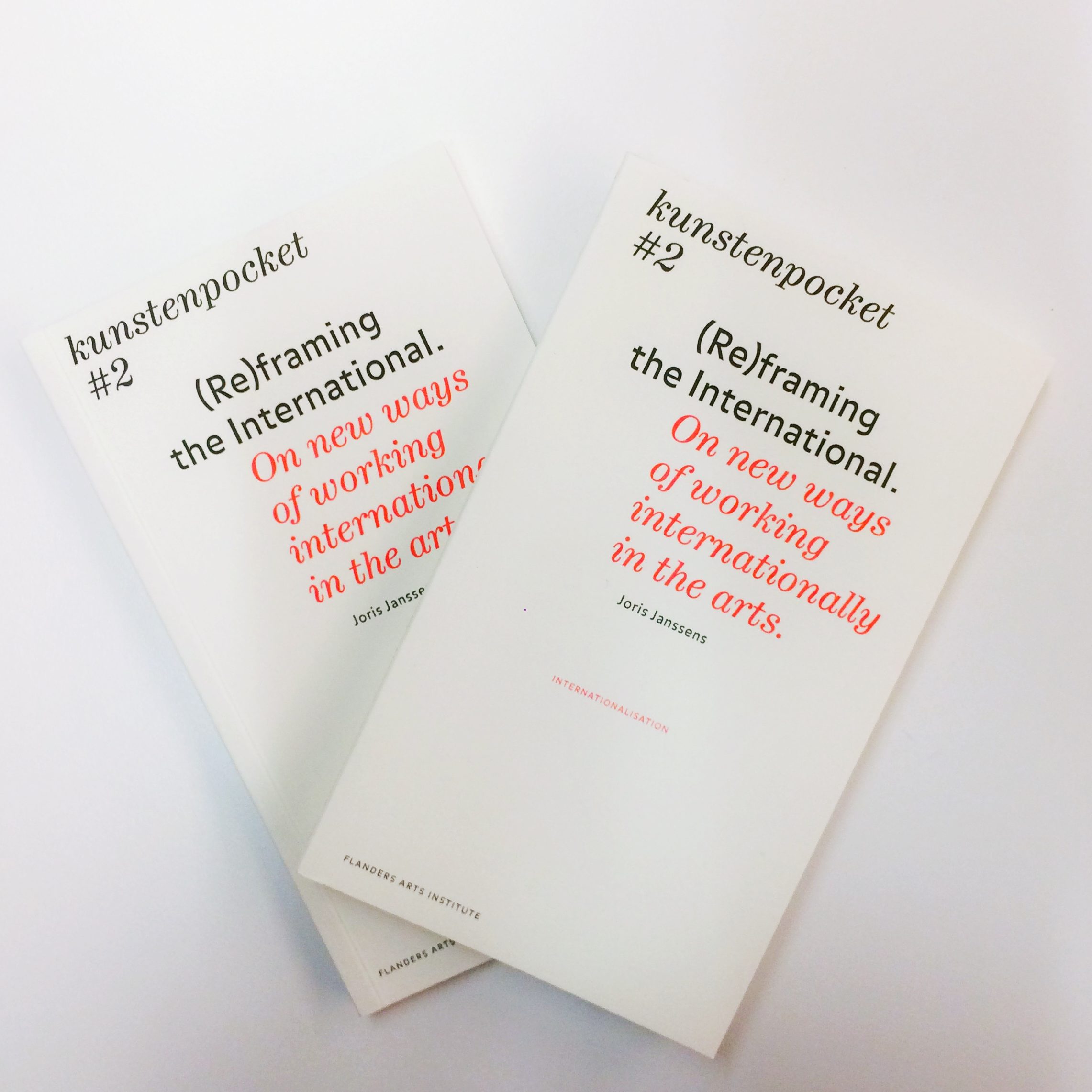Reframing the International. On new ways of working internationally in the arts.
For years, working internationally has been self-evident, taken for granted by musicians, visual and performing artists. Thanks to economic, technological, cultural and political developments, their practices have become highly internationalized. At the same time, there is mounting discomfort. Artists, performers, organizers, groups, curators, managers and producers are all indicating that they are having to work harder and harder to achieve the same results in a market that may indeed be growing, but is increasingly competitive. It is also becoming more dificult to explain to governments and other stakeholders why investing in the internationalization of the arts is so important.
Moreover, when we travel, we are increasingly haunted by ethical and ecological concerns. As we build on international and even intercontinental successes, there is a gnawing awareness that there are ecological limits, and that we, when working internationally, find ourselves caught up in bubbles of like-minded people, with no time left for truly meaningful exchanges. We are conscious that access to the international arts system is not equal. An artist from a European country can get a visa for almost any country in the world, but that is not true the other way around. Who is allowed to travel and who is not? What is that privilege based on?
In short, working internationally remains important, even essential, but it has lost something of its self-evidence and its innocence. For this reason, in late 2016, Flanders Arts Institute began (Re)framing the International, an intensive research and development project about the current state of working internationally in the arts. We wanted to better understand what is happening, both in the arts and in our societies at large. What trends are we seeing? What is the actual value and meaning of working at the international level? Are we realizing that potential? What frictions and contradictions have been presenting themselves? What answers are being developed by and in the arts today? Are there alternatives? Can others learn from this? Can we develop a new vocabulary and a new narrative in order to talk about the value and the meaning of working at the international level, for artists and for any society? Are there arguments here for engaging in dialogue with stakeholders in a diferent way?
To help answer such questions as these, between December 2016 and September 2018, an interactive investigation was developed, a trajectory pursued together with professionals from the visual arts, performing arts and music. The intention was to chart meaningful trends and stimulate reflection and the exchange of knowledge about working internationally in the arts and its efects. Written contributions, symposia and workshops have been completed. The resulting identification of trends, testimonies and reflections were published online and compiled in print, in a series of three English-language pop-up magazines, released between November 2017 and May 2018.
For those who have lost track, or who like things short and simple, there is great news. In four parts, this booklet has collected some insights and light bulb moments from throughout the whole project. Firstly, we take pause at the turbulent context in which this project began. There then follow the insights gained from the analysis of the data. The third section includes concerns raised by artists and art professionals in keynote speeches, statements, interviews, focus discussions and workshops. These are not people who sit still; they are actively working to find solutions. In part four, possible future paths to create a more durable international practice are considered. Perhaps we here see the budding of a new, future way of working at the international level?
Happy with what you’ve read? Send us more stuff like this!
